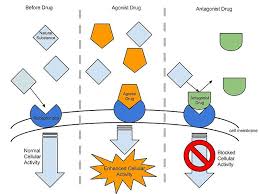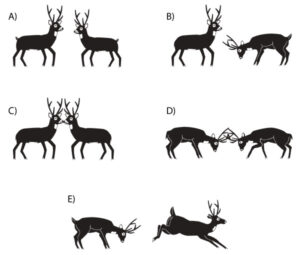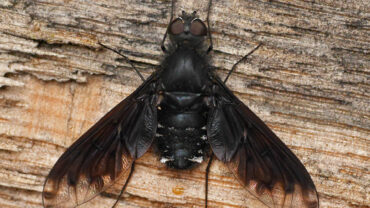Agonist
Agonist An endogenous substance or a drug that can interact with a RECEPTOR and initiate a physiological or a pharmacological response characteristic of that receptor (contraction, relaxation, secretion, enzyme activation, etc.).
agonist or Agonistic behavior This behavior usually involves two animals in a competitive contest, which can be in the form of combat, threat, or ritual, for food, a sexual partner, or other need. The end result is one becoming a victor while the other surrenders or becomes submissive. Both exhibiting different traits. When one surrenders, it stops the combat because the continued battle could end up injuring both. Likewise, any future combat between the two individuals will likely end with the same result.
Many animal social groups are maintained by agonistic or agonist behavior where one individual becomes dominant. And the others become subdominant, and so on down the line. They control the others in a dominance hierarchy or “pecking order.” This dominant behavior can be used to control access to food or mates. Chickens, gorillas, and wolves are good examples of social groups maintained by dominance.






